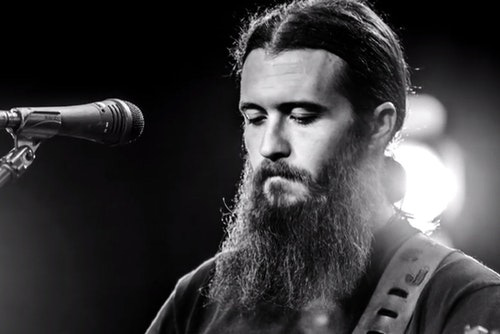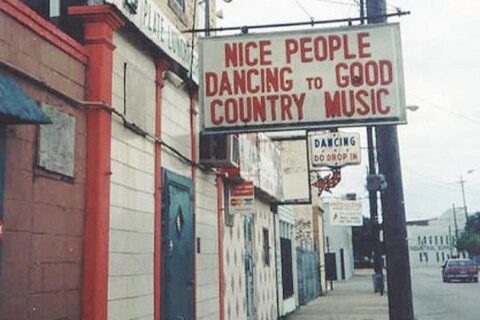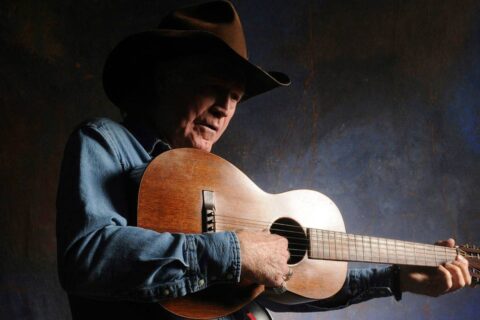A few years ago, turning on the radio to a country station (at least the ones I had around me) was liable to get you some Luke Bryan, Billy Ray Cyrus, or Brad Paisley. Nashville nu-country ran the show, although you might have gotten an occasional throwback to old country from before the genre was reconstructed. Thankfully, country music is having a mostly grassroots revival, although those kinds of stations still exist. This is most likely due to the rise of independent listening apps like Spotify, as well as the fact that even the Average Joe can only listen to braindead borderline pop songs for so long. Humans have an urge for substance, a desire for a little more.
That has recently been shown in Cody Jinks’ newly released albums, After the Fire and The Wanting, respectively. Accommodating the distaste left in the mouths of millions of Southerners, artists like Cody have gone the independent route to make their music. From the suburbs of Fort Worth, coming out of a thrash metal band, Cody found his way back to his roots in 2005, releasing his first country album in 2008, with his second, much more successful album, Less Wise, two years later. Cody’s real hit came in 2015 though, with Adobe Sessions, shooting him into the spotlight. From there, his career has gotten him to be one of the largest names in country music, especially in the Texas scene.
Throughout his career, Cody has given us music reminiscent of Ol’ Merle and Hank Williams Jr., although he has by now found his own sound. That being, one that displays what country used to be about, the Southern heart. The two most recent albums, both released within a week of each other, express the Christian struggle between temptation and righteousness like no other. Any country singer worth their salt has had plenty of Christian references and undertones sprinkled throughout their music, but Cody’s two recent albums focus on this as the main theme. Cody’s music has exhibited this before, such as in Cast No Stones; now we get two whole albums that have this running through them. Most Nashville artists never devote much time to God, or anything remotely intellectual for that matter.
After the Fire, the first to be released, is much slower and toned down, but just as reflective upon the internal struggle we all go through. Right out of the cage, the first song with the same name, gives a story about a man that’s lost. Its meaning is up to the listener; it’s purposefully ambiguous, although it can be taken to be a love song, religious, or whatnot. Following a few tracks later is a similar song, “Think Like You Think,” about a hypocrite that, though fiercely religious, chooses to ignore his conscious and drink until he can’t function. Temptation gets the best of us sometimes, even when we know it can only end one way. Songs like “Tell ‘Em What It’s Like” highlight a more minor theme of the two albums, that is Cody’s regret with singing for a living and having to tour.
The second album, The Wanting, goes through the same themes in a more “spread out” manner. While After the Fire was shorter and more concise, The Wanting has two more songs and runs ten minutes longer. This album delves deeper into Cody’s psyche with tracks like “Same Kind Of Crazy As Me” and “Which One I Feed,” the latter spawning the album’s cover of a black wolf with a second white head. The same religiosity is shown however, notably in “The Plea,” a song where Cody combines his regrets of touring with his call for God to protect him.
The Christian South is summed up chiefly by only a few desires. They are: to serve God, not oneself, and to raise a family, not cain. Self-determination, a good dose of freedom (within reason, of course), and honor compliments these two, very simple aims in life. However, though we all, at heart, want this handful of things, some people wish to curb us from getting that. More often than not though, it is our own sin that does that for them. Sometimes we are our own worst enemy, hence why it is so important to conquer your soul before anything else. This is a struggle for any man, and that’s what makes country what it is; the lamentations of the Southern people, both about the world and ourselves.




Thank you for the pointer to Cody Jinks. I am not a country music fan, but I am old enough to remember Merle Haggard sr. and that generation, and I did like some of it. The newer stuff is just too fake for my taste. But I listened to a couple of Jinks’ cuts, and I like it.
If you know of other new artists like Jinks, please promote on your blog.
Great review! There’s so much good music that’s out there but under the radar. It’s encouraging to see y’all help it get some daylight.
Texas Country is the Best Country.
I listened to jinx after I read this. I really enjoyed it. I’m a big alt country fan, but have grown disgusted with the hard political left turn some of my favorite artist make after they become succesful. Jason isbell, drive – by – truckers, and Sturgill Simpson have all sold out. I would like to read more reviews of artist here on the website.